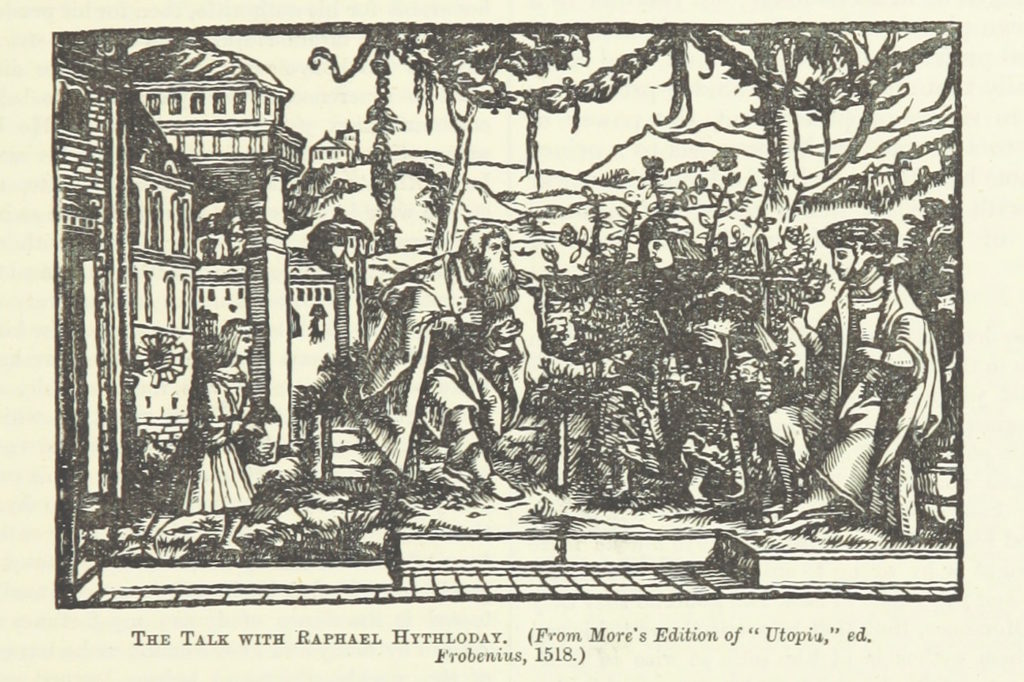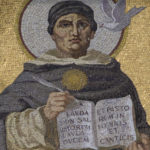In 1513, Niccolò Machiavelli penned The Prince, a deceptively slim volume aimed at overturning ethics-based approaches to politics and replacing them with a scruple-free focus on “the effectual truth.” Though his celebration of murder and deceit earned him immortal infamy, Machiavelli’s core message—that “success” is the only measure of right and wrong—has proved enduringly influential among those who consider themselves political “realists.”
Despite Machiavelli’s successful self-branding, some have rightly discovered in his revolutionary “realism” the seeds of modern extremism. Having condemned the principles of classical philosophy and Christianity as “imaginary” and impractical, Machiavelli promises that we can assure the satisfaction of our “natural and ordinary” desires for safety, pleasure, and power if we accept the strategic violation of traditional moral standards.
By now, the recipe is sadly familiar: visionaries concoct an ideology promising universal happiness, if only we agree to concentrate power in the hands of a political elite absolved from ethical constraints. Mobilized by false hopes, modern man time and again looks away as crimes big and small are committed in the name of a utopian future that somehow never arrives.
There is no evidence that Thomas More was aware of Machiavelli in 1515 when he conceived the plan of Utopia. Indeed, the critique of idealism implicit in the book is primarily directed against distortions of the Socratic and Christian principles that Machiavelli repudiated. A careful consideration of More’s masterwork, however, shows that its teaching enables us not only to diagnose Machiavelli’s errors, but also to formulate a remedy for the deadly and infectious ideologies those errors have bred.
Start your day with Public Discourse
Sign up and get our daily essays sent straight to your inbox.Utopia as an Exercise in Prudence
Utopia focuses on the discourses of a fictional character, Raphael Hythloday, who insists that a certain imaginary island he visited embodies not only “the best form of a republic,” “but also the only kind worthy of the name.” For his part, More informs us that he finds “quite a few” of Utopia’s customs and laws “quite absurd,” especially its abolition of private property. Even of the “many” of its institutions he finds desirable, More thinks it unlikely they will ever see the light of day.
Having elicited from his interlocutor this mixture of the absurd and impractical, More declines to press the argument further, in light of Raphael’s intolerance of opinions “contrary to his own.” He closes with the hope that one day there will be “time to consider these matters more thoroughly,” inviting us to do the same. If, as More claims, Utopia is a “truly precious book, no less profitable than delightful,” pondering Raphael’s absurdities ought to be both amusing and educational.
More connects the serious and satirical purposes of his work in its framing letters, which are addressed to Peter Giles, his fellow humanist scholar and statesman. In the first letter, More presents himself as reluctant to publish Utopia. He explains that its learned qualities put it beyond the grasp of the majority of readers, for whom erudition is burdensome, while its humorous and non-technical approach will fail to impress dour scholars steeped in jargon-laden discourse.
Utopia’s ideal reader would be someone like Giles himself, whom More praises (paraphrasing Christ) as combining prudence with simplicity. Though such men are rare, More provides guidance for the aspiring reader in his concluding letter, where he delights in the judgment of a “friendly critic” who, having read Utopia “deliberately and carefully,” objects that the story is too absurd to be true, while lacking the “good judgment” even fiction should possess.
More praises this critic for his emphasis on good judgment, but chides him for missing textual clues informing the reader that Utopia is “a fictional presentation” designed to “make the truth slip more pleasantly into the mind like medicine smeared with honey.”
As to the author’s supposed lack of judgment, More reminds the critic that the most hallowed of ancient philosophers also describe republics in which certain matters “are not thought through in a sufficiently practical way.” The reason for this approach, as Plato explains in his Seventh Letter, is that virtues such as wisdom (knowledge of the highest things) and prudence (the application of such knowledge to practical affairs) cannot be transmitted by writing. The practical purpose of philosophical works must therefore be to help us acquire these virtues for ourselves.
More checks Raphael’s enthusiasm for political perfection with the observation that “everything will not be done well” in society “until all men are good,” which he “does not expect to see for quite a few years yet.” More thus hints that Utopia is designed to contribute to the betterment of actual societies by encouraging readers to grow in the virtues of simplicity and prudence by noting and avoiding the arrogance and extremism of its protagonist.
Raphael’s Poisonous Imprudence
Raphael, whose name means “God’s Healer, Peddler of Nonsense,” believes himself to be the bringer of divine medicine. For him, Utopia’s unique success at combining material prosperity with the universal practice of the virtues confirms that the prideful love of money is the root of all evil and that “the one and only path to the welfare of the public is the equal allocation of all goods.” Though he finds the same lessons implicit in Plato and Christianity, it was somehow left to the Utopians—without the benefit of either—to put these notions into practice.
Raphael’s ideal is indeed the same as that of Socratic Christians like More: the perfection of human nature through the practice of intellectual and moral virtues. Unlike More, however, who tempers the political pursuit of virtue by embracing Aristotle’s defense of private property, Cicero’s love of republican liberty, and Christ’s admonition to be prudent as serpents, Raphael portrays Plato as refusing to make laws for non-communist societies and depicts Christ as commanding us to shout even the hardest truths from the housetops.
Raphael’s predilection for decisive solutions to delicate problems colors his account of Utopia from the beginning. He tells us that the regime was founded when a military conqueror named Utopus “brought its crude and rustic mob to a level of culture and humanity beyond almost all other mortals.” Here as elsewhere Raphael appeals to humanistic principles without explaining how they are achieved. We never hear about the education through which Utopus enlightened his unpromising pupils or that by which later Utopians transmit the culture he founded.
All we know about Utopus is that he used arms to conquer and enslave the inhabitants of a peninsula, forcing them (and his own soldiers) to perform the wondrous and fearful feat of digging it into an island. Later Utopians continue this tradition of forced labor, using a system of surveillance and legal penalties to constrain everyone to labor in the production of goods redistributed by officials whose original titles (“old men of the sty” and “plain gluttons”) do not reassure us of their devotion to distributive justice.
In an evident distortion of classical-Christian political philosophy, Raphael believes men can be made virtuous by forcibly depriving them of any opportunity to act otherwise. In one of his many slips of the tongue, he remarks that any Utopian found traveling without permission is branded a “runaway” and “severely punished”—as if citizenship were a form of slavery!
There are numerous hints as to how More expects such schemes to work in practice. For example, Raphael tells us that Utopians despise money and select leaders without campaigning or contention. Later we learn that they stockpile gold and silver taken from defeated enemies and use it to hire mercenaries with whom they conquer other foes. Having defeated rival nations in wars of questionable justice, they send representatives abroad to collect tribute while living “in grand style” and playing the part of “great lords.” All without pride or avarice?
More predicts that Utopian institutions would exacerbate rather than suppress the human proclivity for faction and violence. What is needed in politics is not a panacea able to “thoroughly eradicate corrupt opinions or cure long-standing evils” in one dose, but rather the patient use of sound laws, rhetoric, education, and religion to correct humanity’s worst faults and turn corrupt souls in the direction of virtue.
Machiavelli’s Deadly “Medicine”
At first glance, Machiavelli would seem to be wholly opposed to Raphael’s extremism, which is rooted in the attempt to instill Socratic virtue by force. By dismissing the objective good on which classical virtue is based, Machiavelli encourages both princes and peoples to govern themselves not by ethical reasoning, but rather by amoral calculations of what is required to secure the objects of their subjective desires.
Indeed, Machiavelli presents his new political order as a liberation from the oppressive and impractical schemes of moralists like Raphael. Assuming that “the great” want nothing but power and glory, and “the people” nothing but comfort and pleasure, Machiavelli devises a “medicine” by which rulers can be cured of the disease of competition and the masses can be relieved of their insecurities. That medicine is nothing but “cruelty well used,” the purpose of which is to brand rivals of government authority enemies of the people, so that the former may be eliminated or neutralized in the name of the latter’s safety or satisfaction.
An illustration of this Machiavellian technique is seen in More’s own execution. Henry VIII succeeded in usurping church authority and confiscating church property, in part by depicting adherents to the traditional faith as corrupt or treasonous, and in part by redistributing stolen offices and lands among those supporting his schemes.
How well has this Machiavellian medicine worked? Henry’s excesses are sometimes excused by those who see him as laying the foundations for the modern state, whose definitive dominion over all within its borders is credited with making unprecedented advances in liberty and prosperity possible. At the same time, whether we consider early modern wars of religion, the world wars, or the mass murders committed by totalitarian regimes, the modern state has also proved itself capable of organizing injustice and oppression on scales hitherto unknown.
Even in more decent modern regimes devoted to commerce and republican government, a Machiavellian formula of power and profit informs a “culture of death,” rationalizing the silent slaughter of those (such as the unborn and the infirm) whose combination of weakness and neediness makes their elimination all too tempting to our baser passions. This is not to mention the subtler degradation of humanity by which a culture of “total work” reduces all activities—and even persons themselves—to their market value.
As Alexis de Tocqueville notes, philosophic materialists ought to give man “a modest idea of himself,” but instead, “when they believe that they have sufficiently established that men are only brutes, they appear as proud as if they had demonstrated men were gods.” Machiavelli and his disciples, as arrogant as More’s Raphael, have repeatedly sought to “make [men] believe by force” in their delusional schemes for the achievement of utopian progress.
Simplicity and Prudence as Antidotes to Repressive and Indulgent Idealisms
In the final analysis, Machiavelli’s imprudence is surprisingly similar to Raphael’s. Since prudence is the virtue that finds practical means to moral ends, imprudence may consist in rejecting either practical realities (as does Raphael) or ethical principles (as does Machiavelli). In the latter case, practical reasoning detached from objective principles can neither identify nor accept limits to what one may desire or do in fulfillment of desire, resulting in a recipe for endless conflict, violence, and dissatisfaction.
Though Raphael’s utopianism stresses repression of the passions and Machiavelli’s promises their liberation, both offend against the same set of virtues—simplicity in loving the good and prudence in putting it into practice. Fostering these virtues, as Utopia does, remains the best antidote to the poisonous pseudo-medicines so abundantly on offer in modern political societies.
An earlier draft of this essay was presented at Louisiana State University on April 6, 2019 for the Eric Voegelin Institute’s Conference on “Realism and Idealism.” I am grateful to the conference’s organizers and participants for inspiring and informing its argument.














